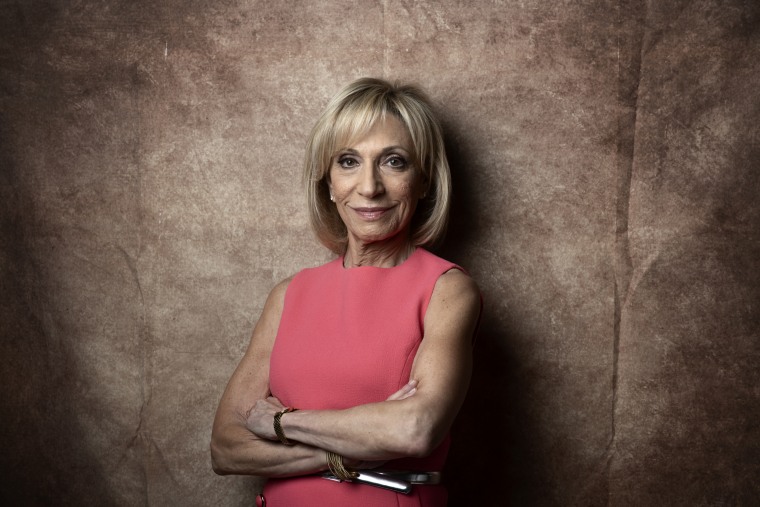NBC News and MSNBC are celebrating 40 years of veteran journalist Andrea Mitchell. Know Your Value talked with Mitchell – NBC’s chief foreign affairs correspondent and host of MSNBC’s “Andrea Mitchell Reports” – about her most memorable stories, her best advice for newbies and how she came to know her own value.
Q: July 31, 2018, marked four decades for you at NBC News. Looking back, which professional moments come to mind – whether your proudest times, or most surprising experiences?
One of the glories and challenges of journalism is that everything is unexpected. Especially in this administration: There are no norms when it comes to the agencies and cabinets we cover. So much is centralized in the presidency now.
Looking back, there have been wonderful moments and challenging ones. Soon after I came to NBC I went to Jonestown, Guyana, to cover the mass suicide.
[Editor’s note: On November 18, 1978, more than 900 members of the American cult People’s Temple died at their settlement in a mass suicide apparently directed by leader Jim Jones.]
That was mentally and physically challenging: Filing was difficult from overseas, and people there were in various states of terror and shock. Then there was the physical fear; some of our colleagues had been assassinated covering the story before I was sent in.
Then there was the Three Mile Island accident the next year, when I was working as an energy correspondent. We didn’t know enough about nuclear power as a country, much less within journalism. So I had a lot of technical challenges; it took research to learn enough to challenge officials, and figure out why things had been so badly run.
Overall, whether it was the challenges of covering nuclear treaties, the conflict in Haiti or various presidencies, I’ve had to study a lot and work hard to know my stuff. I ended up delving into foreign policy in a big way, and it turned out to be one of my greatest joys. Everything we’ve done over these years has been the result of a lot of teamwork with the people at NBC and MSNBC, plus trying to explore my own strengths and deal with whatever weaknesses in the meantime.
Q: How did you discover those strengths? What was your "Know Your Value" moment, when you realized your impact and your power?
I was covering Capitol Hill in the late 80s and 90s, and the Clarence Thomas hearings raised the consciousness of the people covering it, including me. There were no women on the Judiciary Committee, and we all knew those kinds of facts. But to see how the hearings played out was striking. Many lawmakers behaved very badly, both Democrats and Republicans. It was stunning to see what some of these supposed “liberal icons” were saying. That was a critical moment for me.
Q: If you could go back to the Andrea Mitchell of 1978, what advice would you give her?
I probably should have paid more attention, earlier, to the technical side of the job. The advances have been incredible – the way we file our stories, the Internet. I think back to the challenges of stories like the 1992 [Clinton] Bus Tour, trying to file from the road, and working in early videotape.
At least in those early days, I let other people worry about that “IT stuff.” Now I pay a lot more attention. But I do miss the old days. In that process we were very involved in the editing of our pieces, but then it gradually became much more segmented as you’re filing for different types of venues. I do miss picking shots, and really getting granular on a story.
Q: And what would you tell women coming into the workforce now, especially in the journalism industry?
In all industries and especially in journalism, it’s important to stand up for yourself – to know your rights and opportunities – and to understand how to champion yourself. Very often I think women are too self-effacing. Especially when it comes to money, but also assignments and other issues. Women need to be as aggressive as men generally are in the workplace. Men are raised from early childhood to know their value. But women, we tend to underestimate our value, and we’re generally terrible negotiators. I know I am, even now.
But we can band together. Especially in the early days there were so few women, we bonded in the White House press corps. Even now we email each other to chat, and we protect and defend each other, across background and age. There’s power in a collective group.
